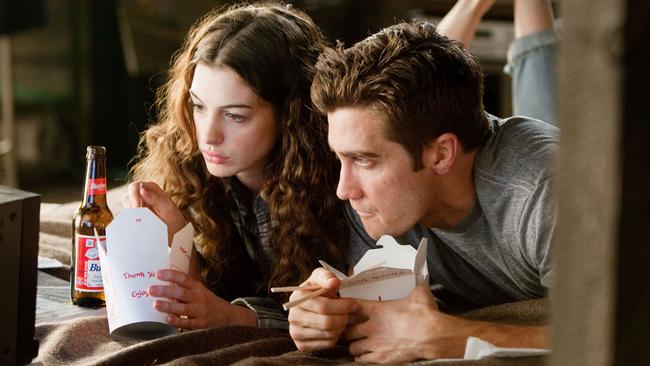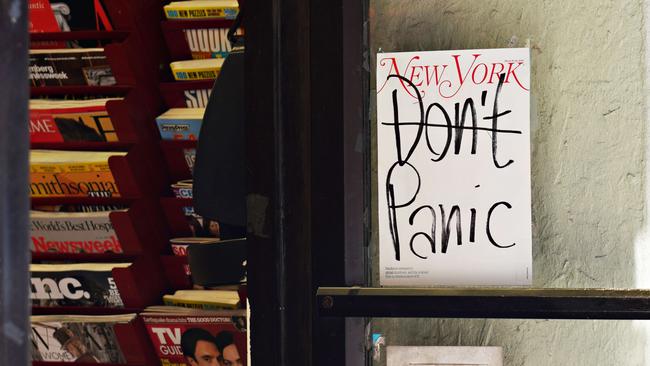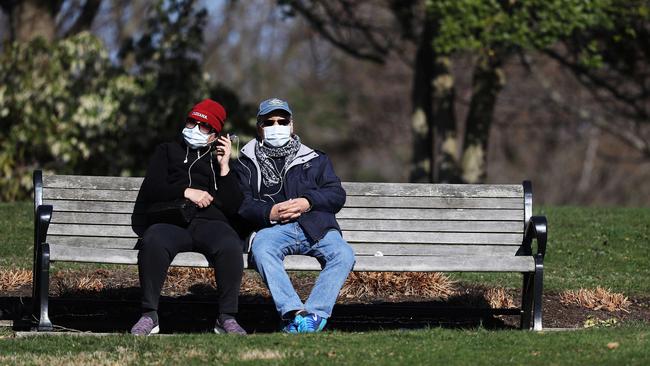Coronavirus: Seven ways to stay calm and avoid anxiety
These are dangerous times and it may feel right to binge on food and Netflix. But no matter how bad things seem, remember that we humans can bounce back, writes Professor Joseph Ciarrochi.
Rendezview
Don't miss out on the headlines from Rendezview. Followed categories will be added to My News.
This is a time of great anxiety. There is a global pandemic and anxiety is a natural response. We can think of anxiety as a message, telling us that there is something potentially bad that could happen and that we need to do something about it.
But why do some people cope badly during trying times?
Because they treat anxiety not just as a message, but as something bad in itself. They hate the anxiety and do a lot of destructive things to get rid of it.
It’s like they receive a message on their phone that they don’t like, so they destroy their phone. Then they destroy everybody else’s phone.
People react badly to anxiety in two ways.
First, they may totally deny or avoid the real threat. They don’t want to feel anxious, so they just downplay and minimise the pandemic and don’t take protective actions. Such people may put themselves and others at risk for corona.

The second ineffective way of responding to anxiety is to overreact and engage in lots of behaviours that hurt yourself and others but don’t keep you safe. Hoarding toilet paper is an over-reaction that probably doesn’t increase your safety. We might also overreact to anxiety by doing destructive things, such as trying to suppress our thoughts about the pandemic, or trying to escape anxiety by over drinking, binging on food or Netflix, getting angry to feel a sense of control, or worrying all the time. There are thousands of ways that we respond to anxiety that can be destructive.
The research is clear on this matter. If you seek to deny, avoid, or overreact to anxiety, your anxiety is likely to get worse.

The people who respond well are the ones who demonstrate character. They do all six of the things we describe below. They do what they need to do to keep themselves and others safe, and they don’t engage in denial or overreacting. They do exactly what is necessary and important: no more no less.
Six tips for maintaining a positive outlook
1) Make peace with your anxiety. Your anxiety is just your body telling you to be careful. Don’t seek to manage your anxiety by denying or avoiding danger. Nor should you try and manage anxiety by overreacting to it. Make space for the anxiety in your body. It will come and go like the weather, if you don’t fight it. If it helps, find some online mindfulness activities that allow you to experience anxiety in a mindful and non-defensive way.
2) Remember what you care about. You will be able to act in a clear and principled way if you know what you value, or care about. Most humans value connecting with others, giving, being active, challenging themselves, and embracing little things in their everyday life. What do you value? Remember to engage in your valued activities, even when we live in a world that is anxiety provoking. People with character are the ones who stay committed to the values, even when anxious.

3) Know that there is opportunity even in dangerous times. The coronavirus presents you with danger and will change the way you live your life (at least for now). But not all the change needs to be negative. Maybe the virus can be a wake up call, to remind you that you are alive right now and have people you care about and love. Danger has always been around us, but we often didn’t notice it. We didn’t think daily about how we could get in an accident or lose our health or job. That stuff was invisible. Now that the danger has woken us up a bit, you can ask new questions about your life. Are there ways that you can change your life for the better? For example, can you spend more quality time with your family? Can you look for new ways to improve yourself and your relationships?
4) Focus on what you can do in the moment. Humans are good at worrying and imagining how things can go terribly wrong. It is okay to worry, this is natural. We use worry to solve problems and eliminate threats as much as we can. Unfortunately, your worry has its limitations: It can’t make all dangers go away. At some point, when we are taking the best actions we can to protect ourselves, we need to let go of the worry and just live here and now. Focus on what you can do right now to make your life better or to enjoy yourself or to express friendship or love.
5) Stay connected. One of the best things you can do to reduce the spread of coronavirus is to create a physical distance between you and others. However, remember that physical distance is not the same as psychological distance. You can feel psychologically close to someone, even if they are a thousand miles away. And you can feel distant from someone, even if they are standing right next to you. During this time of physical isolation, it’s important to keep your psychological connections to people. You may need to make an extra effort to call them or chat with them online. We know that humans need social connection, in the same way that they need nutrients. Research shows that loneliness can be as big a risk factor to your health as obesity and smoking 10 cigarettes a day.
Prior to the coronavirus outbreak, you might have maintained social connections through contact with them in public places. Now, you may need to make a more deliberate effort to connect with people in new ways. Your health depends on it.

6) Be kind. When we humans are put under stress, we sometimes tend to become selfish. We might react to our stress with selfish hoarding behaviour (buying all available toilet paper and pasta). We may feel hostility towards others who seem to have an advantage, or who seem to be taking limited resources away from us. Soon, we may start to become distrusting, resentful, and angry. We know that such negative emotions can take a toll on your immune system and ironically make you more susceptible to illness. The solution to this problem is simple. Act with kindness. Be generous. Not only will this make your fellow human more kind and more generous, it will make you happier and healthier. Research shows that acting with kindness improves your well-being.
7) Remind yourself that this too will pass. Research suggests that humans are notoriously bad at predicting how long a bad event will affect them. People bounce back from bad events much faster than they think they will. Think of some of the major disasters that have happened over the last 20 years, and how we humans were able to bounce back and recover and put the disasters in the past. No matter how bad things seem right now, remind yourself that we humans will bounce back and life will get better again.
Professor Joseph Ciarrochi is a best-selling author and researcher in psychology at Australian Catholic University.
Originally published as Coronavirus: Seven ways to stay calm and avoid anxiety
